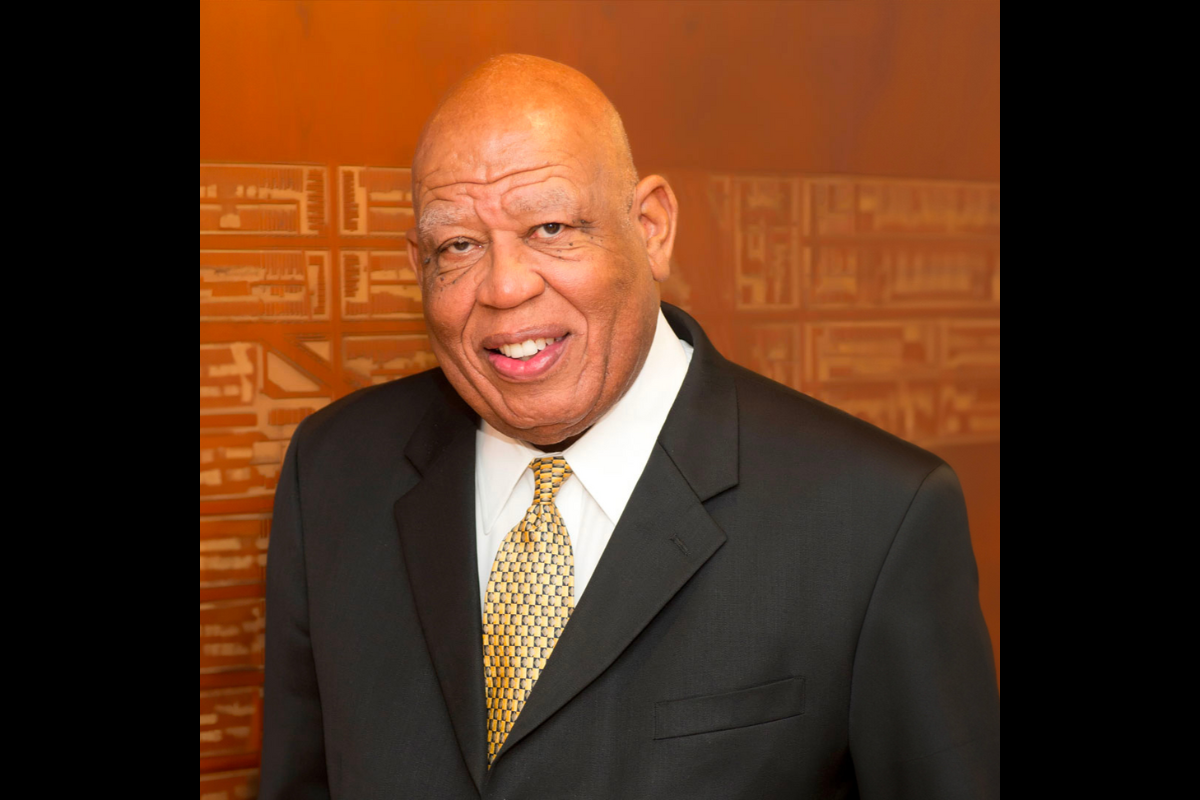
Orlando L. Taylor
1936-2024
NCA President: 1999
Read Orlando Taylor's Obituary
Orlando L. Taylor, 87, was born on August 9, 1936 and passed away on January 16, 2024 after a decline in his health.
Born in Chattanooga, TN, Orlando always referred to himself as just a “country boy.” But, he was so much more. He was an excellent cook. Trivia junkie. God-fearing Christian. Music lover. True fashionisto. Brilliant writer. Creative thinker. Masterful orator. Visionary. University President. Dean. Leader. Professor. Life changer. Career Maker. Colleague. Father. Friend. And gentleman.
This son of the south was also an accomplished scholar, having earned a Bachelor’s degree from Hampton University, Master’s degree from Indiana University, and PhD from the University of Michigan. He was also the recipient of seven honorary doctorate degrees from Purdue University, Indiana University, the Ohio State University, Hope College, DePauw University, Denison University, and Southern Connecticut State University. Throughout his remarkable career, Orlando authored many books and research publications and either led, served, or belonged to countless organizations, working groups, advisory boards, and committees. Several of note include Kappa Alpha Psi Fraternity, Inc., Sigma Pi Phi Fraternity, the Society of STEM Women of Color, Inc., and the Edward A. Bouchet Graduate Honor Society, which he co-founded.
As numerous and significant as they were, his positions, roles, titles, and degrees only tell part of Orlando’s story. In pioneering the research on “Black English” early in his career, Orlando legitimized the African American experience and set a course for advancing Blacks in higher education. He fought hard for the educationally disenfranchised and even harder against the forces that threatened their access to a better life. Orlando understood academic injustice and suffering, knew what to do about it, and actually did it. Over the course of his career, which spanned nearly 60 years, this champion for graduate education was either directly or indirectly responsible for perhaps a third of the PhDs awarded to African Americans in US higher education. He was also instrumental in increasing the representation of minoritized students in graduate programs at predominantly white institutions and transforming every institution of higher education where he worked into a sponsored research powerhouse.
Because of Orlando Taylor – both the man and his movement – higher education will be impacted for the better for generations to come. As the first African American president of the National Communication Association, and through his leadership in other organizations such as the American Speech and Hearing Association and the National Black Speech, Language, and Hearing Association, Orlando was responsible for moving Communication Sciences and Disorders onto the radar and into the discourse of mainstream higher education knowledge networks, and ensuring that there was broad inclusion of Black perspectives in those disciplines. Additionally, by brokering partnerships across institutional divides, both nationally and internationally, and vigorously advocating for the promotion of Black women in STEM into leadership positions, Orlando changed the face of higher education, especially for Historically Black Colleges and Universities.
It only took meeting Orlando one time to know you were in the presence of intellectual royalty. It only took a conversation after that, no matter how brief, to know that you were in the presence of a legend. Orlando brought insight, wisdom, ideas – and humor when needed – to every conversation and situation. But, most importantly, he brought the facts. He could quote any statistic, recall events, or recite anyone’s bio with amazing accuracy. He remembered every name and every turn of events. He knew everyone’s story, including the back story.
And who among us will ever forget that voice? The infectious smile? Or that gut-busting, booming laugh of his? All of which could fill any room and touch every heart in it. Developed while he was a teen working as a radio disc jockey, Orlando’s baritone, easy-flowing, eloquent but down-home style and manner of communicating was nothing short of brightness – a balm for weary souls, an assurance that all was well, or a much-needed affirmation that everything was going to be alright.
Orlando’s love and passion for higher education, as deep as they were, paled in comparison to his real true love – his family. Orlando was a world traveler, avid sports fan, and connoisseur of fine dining. And nothing meant more to him than the times when he could enjoy his favorites with his favorites. The Taylor family trips, outings, parties, dinners, holidays, and just-because visits were the highlights of his life and the basis for his livelihood. For Orlando, family was his greatest source of love, happiness, and accomplishment.
Never admitting to himself or anyone else that he was more than “39” years old, Orlando convinced all of us that he would live forever. He is survived by his son Orlando Taylor, II; daughter Ingrid (Taylor) Boone; daughter-in-law Lisa Taylor; granddaughters Melanie Galloway, Jean Marie Johnson, Eva Brown, Brandee Johnson, Tonee Johnson, and Taylor Boone; great grandchildren Ilyaseen-Nur and Imani White; and dearest friend Kelly Mack, as well as scores of beloved cousins, friends, colleagues, mentees, and students.
Orlando was predeceased by his father LeRoy Taylor, mother Carrie Taylor, wife Loretta Taylor, and brother Robert Taylor.
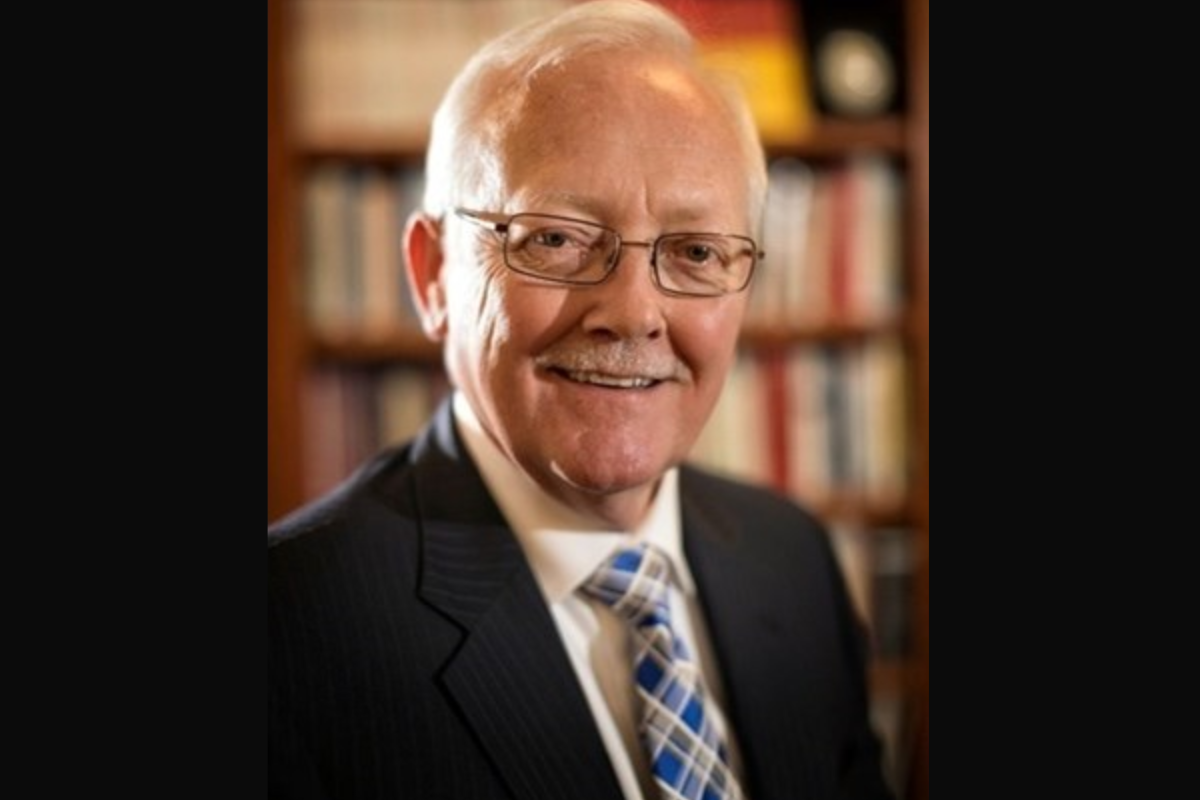
H. Dan O’Hair
1953-2022
NCA President: 2006
It is with deep sadness that we announce the death of H. Dan O’Hair, Ph.D., who served as president of the National Communication Association in 2006. O’Hair, a bestselling author and prominent Communication scholar who specialized in organizational, risk, and health communication at the University of Kentucky, passed away on Dec. 31, 2022. He was 69.
On Saturday, December 31, 2022, Henry Dan O'Hair, beloved husband, father, grandfather, brother, and colleague passed away peacefully at age sixty-nine. Dan was born in Dimmitt, Texas, on April 2, 1953, and grew up in the rural West Texas town of Earth, Texas. He became an Eagle Scout at age 14, drove a combine on wheat harvest from Texas to South Dakota, and in college met his future wife, Mary John, on the Texas Tech University debate team. They were together for over forty years.
From 2009-2018, Dan served as dean of the College of Communication and Information at the University of Kentucky. He previously served as department chair and professor at the University of Oklahoma and Texas Tech University. One of his greatest professional joys was mentoring and supporting faculty, staff, and students. He was known for having an open-door policy for any student looking for help-whether they were working on a course assignment, career planning, or seeking guidance in their lives.
As a prominent communication scholar and former President of the National Communication Association, Dan published over 100 research articles and scholarly chapters and authored and edited over 25 books in the areas of communication, risk management, health communication, and terrorism, including the best-selling, A Pocket Guide to Public Speaking (7th Ed). He loved spending time in Santa Fe, New Mexico; golfing with his son and son-in-law; listening to classic rock music and The Lexington Podcast produced by his daughter and son; and taking his grandchildren to Freshie's every Friday for ice cream.
Dan was best known for his quick-witted humor and sayings, fierce determination, and generous spirit. He is survived by his wife, Mary John; daughter, Erica (Anders) Friis; son, Jonathan O'Hair; grandchildren, Fiona and Hank Friis; sister, Brenda (Mike) O'Brien; and brother, Bill (Gayle) O'Hair. A memorial service will be held in Lexington on Saturday, January 14, 2 p.m. at Crestwood Christian Church, 1882 Bellefonte Drive, Lexington, KY. In lieu of flowers, the family respectfully requests that memorial contributions be made to the O'Hair Early Career Faculty Fund in the UK College of Communication and Information at https://uky.networkforgood.com/causes/19186-o-hair-early-career-faculty-...
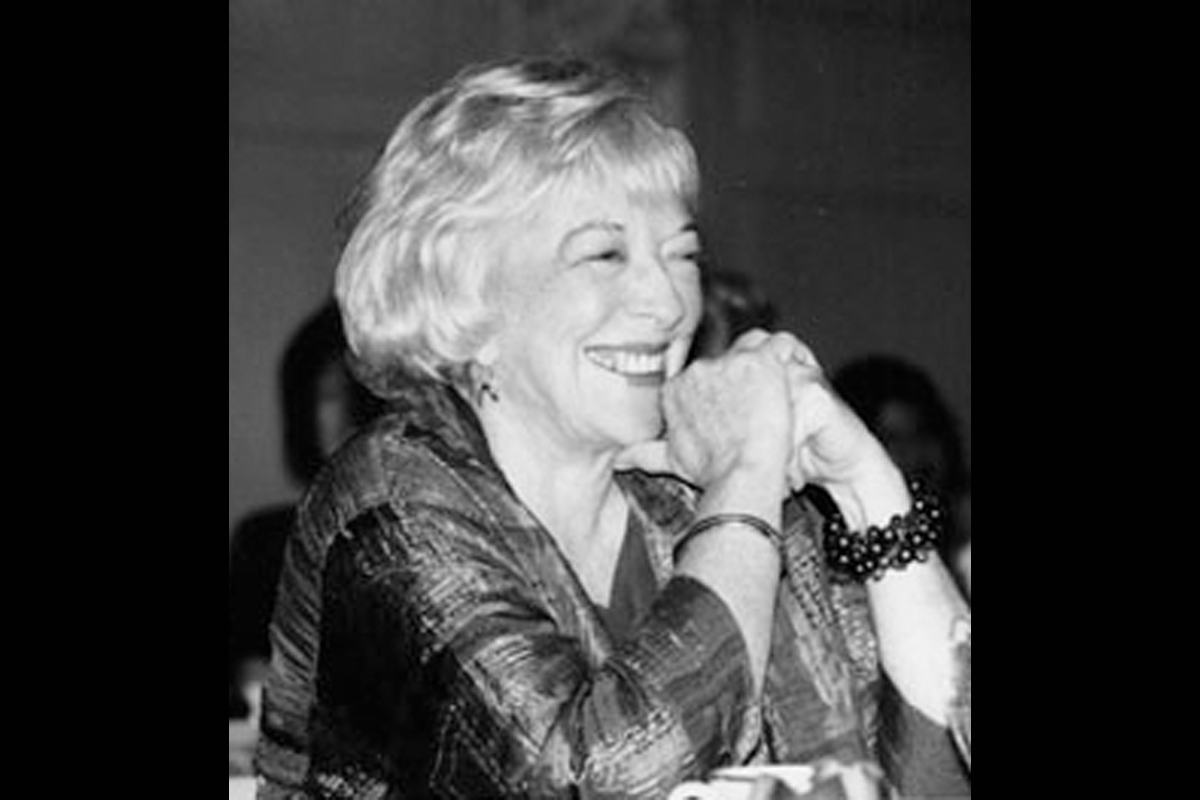
Beverly Whitaker Long Chapin
1936-2022
NCA President: 1985
Beverly Whitaker Long Chapin passed peacefully in her sleep on February 5, 2022 in Pittsboro, NC. The only daughter of Earl and Bernice Whitaker, Beverly was born on July 16, 1936, in Memphis, TN, and spent her childhood in Harrisburg, Arkansas. She was predeceased by both parents; her only sibling, Dr. John Whitaker; and two spouses. She is survived by her two nieces, Amy and Stacey; nephew, Jeff; and grandsons, Billy, Jack, Liv, and Sam.
In 1976, Beverly married William (Bill) Long of Greencastle, Indiana. His son William and daughter Lisa are both deceased. After Bill’s death, Beverly married Hugh Chapin and moved to Galloway Ridge, a retirement community that Hugh was instrumental in developing. Hugh’s family includes two sons, Stewart and Tom.
Beverly earned a B.A. in speech and drama at Hendrix College in Arkansas, and an M.A. and Ph.D. from Louisiana State University. Dr. Chapin’s career included stints teaching drama, speech, and English, as well as directing stage productions and supervising student theses and dissertations. Her professional journey began at Newport High School in Arkansas, next was Texas State University in San Marcos, then the University of Texas in Austin, and finally, in 1978, the University of North Carolina in Chapel Hill. Dr. Chapin held a professorship in Communication and served as Department Chair for 7 years. Dr. Chapin’s teachings were reflected in textbooks, articles, book reviews, stage productions, and conferences. She was the founding Editor of Literature in Performance (now called Text and Performance Quarterly), President of the Southern States Speech Communication Organization, and later was elected President of the National Communication Association. Dr. Chapin was a leader of many professional groups and the recipient of many honors including the prestigious UNC awards: Kenan Professorship, the Thomas Jefferson University Award, and The Chancellor’s Advisory Committee. Beverly was a highly respected and much-loved teacher and mentor. She had a profound influence on the field of performance studies, through her writings, performances, and lectures, but most importantly, through her many students.
Beverly played just as hard as she worked. She was a consummate hostess and liked nothing better than having lively and beautiful dinner parties with friends and family. Her big love was theatre, perhaps sparked when she was ten and producing shows in her parents’ garage. Beverly enjoyed traveling and went on many international trips, visiting countless museums. The island of Greece was her favorite. Beverly loved poetry and brought that appreciation and enjoyment not only to her students, but also to the residents of Galloway Ridge, where poetry readings are now a part of life.
For memorial contributions, please consider Chapel In the Pines (Pittsboro, NC), First University Methodist Church (Chapel Hill, NC), Hendrix College (Conway, AR), and the Special Events Program at Galloway Ridge.
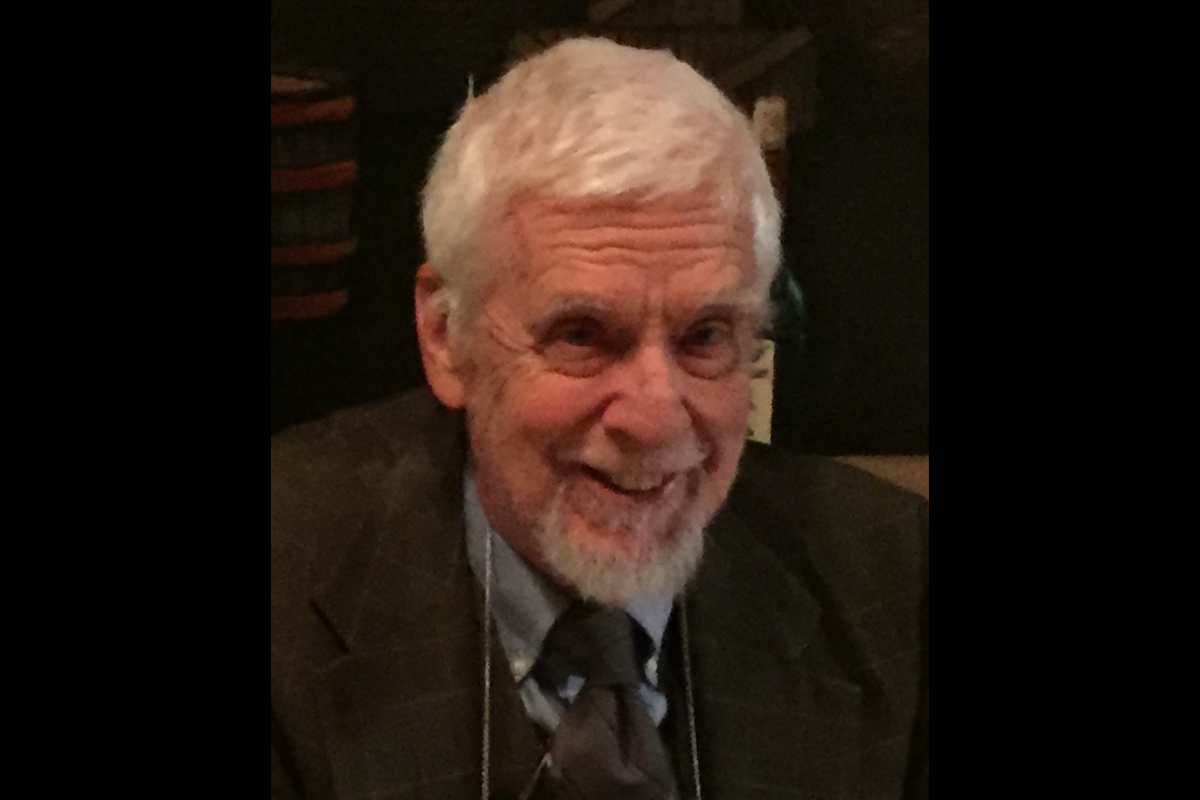
John Waite Bowers
1935-2021
NCA President: 1984
John Waite Bowers, 85, died October 18, 2021 in Bend, Oregon, after an impressive academic career in the field of Communication Studies and thirty years of active retirement. He is survived by three children, John Steven and his wife Laura Bowers of East Amherst, NY, Jeanne Terese and her husband Jud Landis of Eugene, OR, and Julie Michelle of Bend, OR; a grandson, Miles David Bowers of Salt Lake City, UT; and a sister, Susan Willer of Cave Creek, AZ.
Bowers was born November 28, 1935, Thanksgiving Day, to George and Clara Wathier Bowers of Alton, Iowa, the sixth of seven children. Employed as a teenager on the family’s weekly newspaper, he attended the South Dakota State College School of Printing and Rural Journalism in the summer of 1953 to become a typesetter.
After a year of Linotype and Intertype experience at the Alton (IA) Democrat and the Britton (SD) Journal, Bowers in fall 1954 matriculated at the University of Kansas, where he earned his B.S. in 1958 and his M.A. in 1959. Throughout these years, he also worked as a typesetter at the University of Kansas Press.
On June 2, 1956, he married Eleanore Fyock, who would become the mother of his three children. They were divorced in 1975.
From Kansas, Bowers moved in 1959 to Iowa City, IA, where he earned his Ph.D. in communication research from the University of Iowa in 1962. UI immediately recruited him for the faculty, initially as co-director of the Rhetoric (freshman speech and composition) Program.
Except for semesters spent as a visitor at the University of Wisconsin at Madison, Temple University, and the University of Georgia, he remained a faculty member at Iowa for 25 years in what was the Department of Speech and Dramatic Art, then the Department of Communication and Theatre Arts and finally, after a separation from theatre, the Department of Communication Studies. Bowers was the last chair of the combined department and the first chair of the separate department. He presided over the department’s move to its new building, the Samuel L. Becker Communication Studies Building, in 1984.
Bowers chaired Iowa’s controversial Committee on Student Life in the turbulent early 1970s and was a member of its newly-formed Human Rights Committee. He was a faculty leader in efforts to eliminate discriminatory recruitment practices among fraternities and sororities and to liberalize university regulations governing students, especially women, in university residence halls.
In 1987, as the result of a dispute with University of Iowa administration, he moved to the University of Colorado, Boulder, as chair of its Department of Communication. His main task at Colorado was to foster the revival of the graduate program in Communication, which had been suspended by the UCB central administration in 1982.
With the UCB graduate program in Communication restored to full operation, Bowers retired on May 31, 1991. Dean Charles Middleton of the UCB College of Arts and Sciences declared November 3, 1990, John Waite Bowers Day in the college.
A notable scholar in communication research and theory, Bowers edited Communication Monographs 1978-1980 and authored, co-authored or edited at least fifty articles, many chapters, and four books. These included seminal work on language intensity in persuasion, on research methods, on deceptive communication, on communication and conflict and on the rhetoric of agitation and control.
As a volunteer for the Boulder Public Library after his retirement, Bowers wrote articles and compiled manuals, including a tour guide manual when the downtown library facility was new and an index to ephemeral investment resources in public and academic libraries along Colorado’s Northern Front Range.
He moved to Bend, OR in 1999 so as to be involved in his grandson's formative years. He volunteered for many years with the Deschutes Public Library, where he generously shared his expertise as a teacher, writer and editor. He also enjoyed hiking in the beautiful wilderness around Central Oregon, with the “Rainbow Seekers” group.
Bowers served as president of the National Communication Association in 1984. His other honors include the Young Teacher Award of the Central States Communication Association; the Golden Anniversary Fund Monograph Award, the Robert J. Kibler Memorial Award, and the Samuel L. Becker Distinguished Service Award of the National Communication Association; an award for Outstanding Service to Teaching from the Iowa Communication Association; and an award for Outstanding Volunteer Service from the Boulder Public Library.
A donation to your local public library would make an appropriate and meaningful commemorative gift.
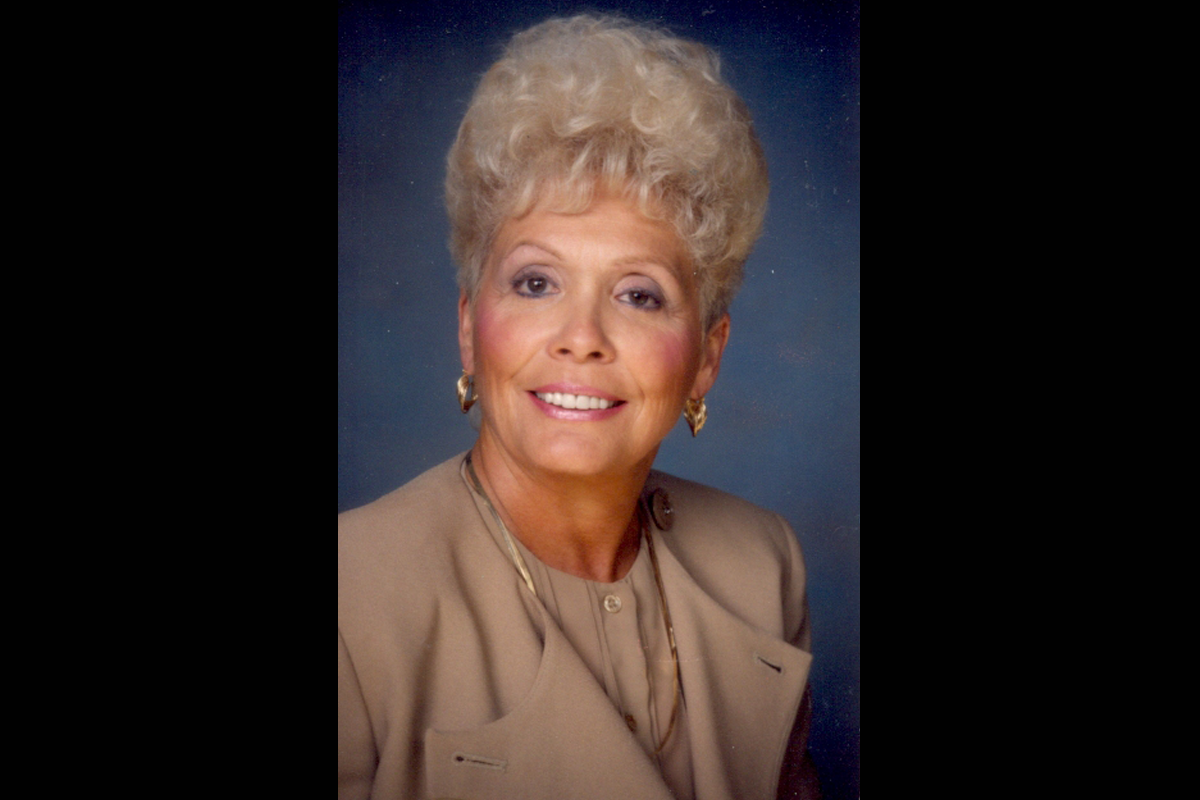
Judith S. Trent
1940-2020
NCA President: 1997
Dr. Judith S. Trent of Oxford, OH died on 11/26/2020 with her loving son Larry by her side.
Preceded in death by her adored mother Evelyn Crothers, stepfather Jack Crothers and husband of 44 years Dr. Jimmie Trent who was the love of her life, professional partner and number one fan. The Trents were consummate hosts, sharing a love for pet dogs, numerous friends, interests, attendance at lectures, wine tastings, museum exhibits, community events and theater performances. They traveled the world together frequently enjoying the sun in what became a second home for 20 years - Puerto Vallarta, Mexico. She is survived by her son Larry Trent (Jennifer) of Oxford, OH; stepson Douglass Trent, Belo Horizonte, MG Brazil; “Brother” Kent Morse, Richmond, VA; and Cousin Pam Hutchinson, Rockford, MI.
Born in a suburb of Grand Rapids, Michigan, she obtained her B.S. from Western Michigan University 1962; M.A. 1968 and Ph.D. 1970 from the University of Michigan in Speech Communication. Her degrees in Communication and experience as a high school teacher and state championship debate coach led her to graduate school and positions at the University of Michigan, Youngstown State University, University of Dayton and Northwestern University. In 1984 she became the Associate Vice President & Associate University Dean of Research and Advanced Studies and tenured Professor in the Department of Communication at the University of Cincinnati.
Dr. Judith S. Trent was a profoundly impactful scholar, leader, administer, trailblazer, and mentor to many leaving a legacy in the Communication Discipline and its national and regional associations.
Her research and teaching interests were in political communication, with a focus in communication in presidential campaigns and the campaign strategies and presentational styles of women in elective politics. She met and interviewed nearly every presidential candidate for over 30 years, leaving such an impression with President George H. W. Bush that he came to UC to give a guest lecture in her class. She was thrilled to see Biden/Harris win the 2020 election.
In 1982, Dr. Trent served as the president of the Central States Communication Association and in 1997 was elected president of the National Communication Association, the nation’s largest and oldest association of communication scholars, teachers and professionals. She was the Keynote Speaker for numerous states and regional communication associations including the Eastern Communication Association in 1998, the Michigan Communication Association in 2000, the Central States Communication Association in 2000 and 2003, the Ohio Communication Association in 2007. She was the recipient of the National Communication Association Distinguished Service Award in 2004 and was inducted into the Central States Communication Association Hall of Fame in 2006. She remained actively engaged, collecting honors and awards to the very end of her life. The Judith S. Trent Award for Early Career Excellence in Political Communication was presented for the first time at Central States in her honor in Omaha, 2019. The Ohio Communication Association honored her as a most impactful member at their virtual conference in October 2020. The American Behavioral Scientist Conference/Summit occurs every four years after the presidential election. The 2020 virtual summit, hosted by Emerson College, opened on November 12, 2020 with a dedication to her.
Dr. Trent was the author, co-author, or editor of over 30 books and book chapters, over 40 academic journal articles, and more than 200 presentations published in communication journals or presented at state, regional, national and international communication conferences. Her consummate work was on Political Campaign Communication and the New Hampshire Primary.
Known to friends as “Juddi,” she was an involved wife, mother and community member participating in leadership roles and hosting many events at her beautiful home. She will be remembered as a treasured friend/member/supporter of Jubilee; The League of Women Voters; Oxford Wine Tasters; the Oxford Community Arts Center; Oxford NAACP Board; The Institute for Learning in Retirement, a Miami University Global Initiative; Holy Trinity Episcopal Church; Des Fleurs Garden Club; the Oxford Community Arts Center; Oxford Country Club; Kiwanis, SPCA and by every person/organization she touched.
The family wants to thank the staff at the Knolls of Oxford for the excellent care that Juddi received in the past year.
In lieu of flowers, donations can be made to a fund Dr. Trent created to help graduate students attend Communication conferences. Direct giving link is: foundation.uc.edu /areas-donate?id=28a0e3ed-044b-405f-8947-75104d044619
Send checks to University of Cincinnati, Department of Communication, P. O. Box 210184, Cincinnati OH 45221-0184. Checks payable to University of Cincinnati Department of Communication, indicate "(TRENT) Communication Forum Fund" in ledger line.
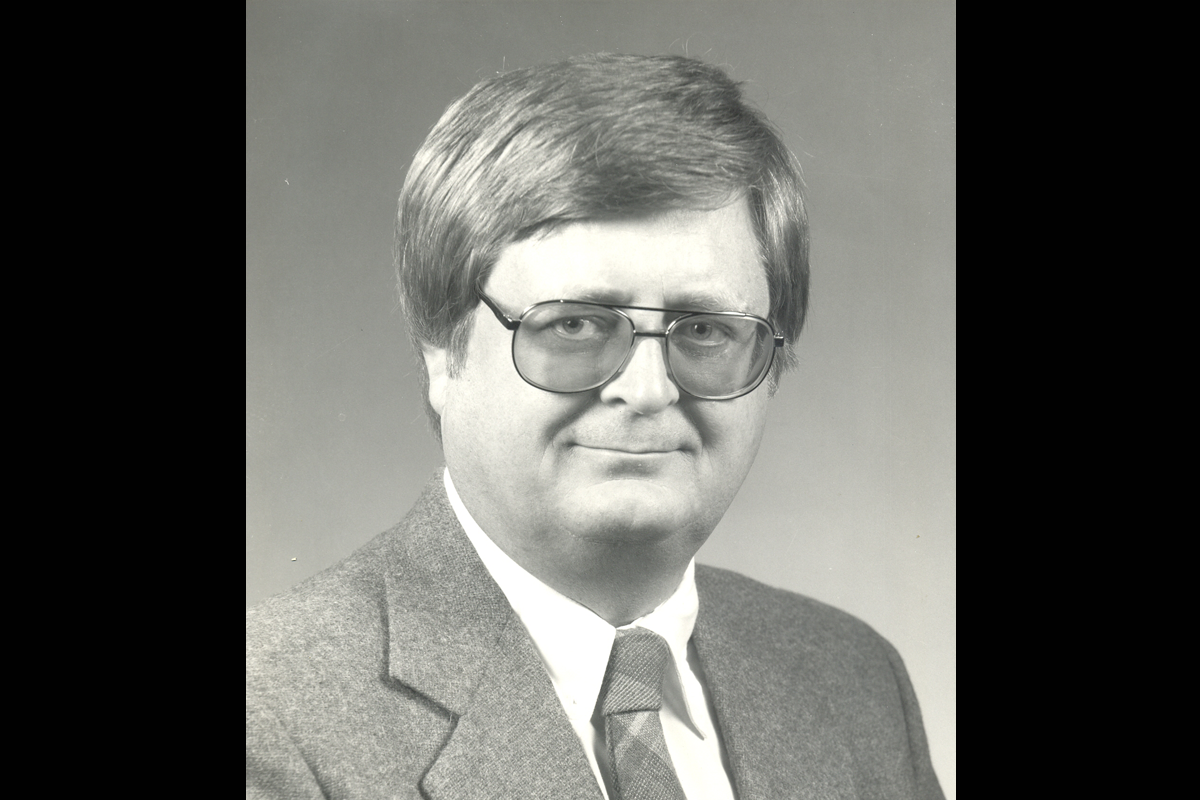
Kenneth E. Andersen
1934-2020
NCA President: 1983
Dr. Kenneth E. Andersen, Ph.D., 86, of Champaign passed away peacefully on Sunday (Jan. 26, 2020).
He is survived by his wife Mary, a son Erik, Erik’s wife Susan and three grandchildren, Nickolas, Megan and Alyssa, of Batavia, Ill. He was the youngest of five children; his three sisters and a brother are deceased.
Kenneth Eldon Andersen was born on an Iowa farm of an immigrant Danish father, Mads Ingvard (Edward) Andersen, and Anna Christiansen Andersen, a first-generation daughter of Danish immigrant farmers. He graduated from Harlan High School, Harlan, Iowa, in 1951. Upon graduating he earned a bachelor of arts, magna cum laude, and a master of arts from Iowa State Teachers College (now the University of Northern Iowa).
Upon competing his M.A. degree, Ken was an instructor in English and speech at the University of Colorado, followed by two years of service in the U.S. Army as an education specialist and part-time instructor for New Mexico State University on the White Sands Proving Ground. He then attended the University of Wisconsin-Madison, where he served two years as a teaching assistant and held a Knapp Fellowship for his third year, before earning his Ph.D.
Following his 1961 doctorate, Dr. Andersen served briefly as a visiting professor at the University of Illinois, Chicago, and the University of Southern California. He then taught at the University of Michigan, Ann Arbor, before relocating in 1970 to the University of Illinois, Urbana-Champaign, eventually retiring as professor emeritus of communication in 1995.
Throughout his career, Dr. Andersen saw himself as an educator with a love of teaching and mentoring. He particularly enjoyed service as a debate coach at Iowa State Teachers, Wisconsin and Michigan. At the University of Illinois, in addition to teaching and administrative appointments in the Department of Communication, he served as associate dean in LAS, interim head of Speech Communication and later of Speed and Hearing Science, and deputy vice chancellor of Academic Affairs.
Deeply committed to the concept of shared governance, he served numerous roles in the University Senate, including three years as chair, three terms as a member of the University Senates’ Conference and, with service extending well into his retirement, as Senate parliamentarian for numerous chancellors.
Dr. Andersen was active in the American Association of University Professors as local chapter member and president, state conference president and treasurer, as well as editor and an editorial writer for the AAUP newsletter. He was a chapter and often conference delegate to more than 30 national AAUP conventions, chairing three national committees and serving a term on the national conference. His service to the Association of State Conferences was honored with the Tracey Award.
Ken was also active in numerous disciplinary associations, including serving in multiple roles for the National Communication Association, such as Finance Board chair, convention planner and president; he was recognized with the association’s Distinguished Service Award. In addition, he served as executive secretary, convention planner and president of the Central States Communication Association and as president of the National Association of Communication Administrators.
Professor Andersen authored books on persuasion and introductory communication and co-authored a book of original essays and selected journal articles. As a contributing scholar, his many articles focused on shared governance, higher education issues and a range of disciplinary subjects from argumentation and persuasion, research summaries and, in later years, ethical issues in communication.
His focus on ethical issues led him to serving as the conference planner and keynote speaker at the National Communication Association 1999 summer conference that formulated the Credo for Ethical Communication later adopted by the association. He believed that to be his greatest enduring contribution to the field of communication.
Ken developed a continuing interest in classical music and theater beginning at the age of 12 when he happened upon a broadcast of Wagner’s Walkure with its magic fire music. He grew to love live musical theater and Broadway musicals. Those interests were expressed through support for the Krannert Center for the Performing Arts as a member of the Colwell Society, then the Foellinger Society, and the sponsoring of many Krannert performances. For over 20 years, he was a season subscriber to the Lyric Opera of Chicago and for over a decade to the San Francisco Opera.
He often said: “I have been incredibly lucky in life: my wife, my son and his family, my profession and chosen discipline, and an incredible range of experiences. As Aristotle stressed in his doctrine of choices, good choices are basic to a good life in a good community.”
A visitation will be held on Saturday, Feb. 1, 2020, from 10:30 a.m. until 12 noon at Morgan Memorial Home, located at 1304 Regency Drive West in Savoy. A memorial service will immediately follow the visitation at the funeral home at noon.
Memorial contributions may be made to Kenneth E. & Mary Klaaren Andersen Fund in support of the Krannert Center for the Performing Arts.
Online condolences can be shared with his family at www.morganmemorialhome.com.
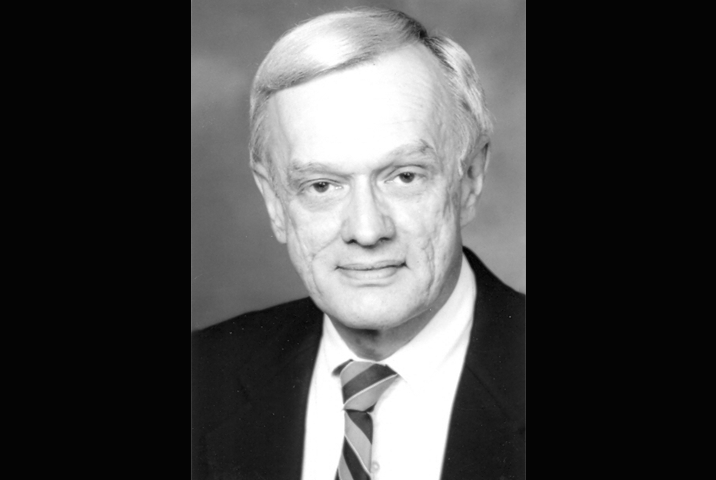
James W. Chesebro
1944-2020
NCA President: 1996
Obituary prepared by David T. McMahan
It is with tremendous sadness that I report the passing of Dr. James W. Chesebro (Ph.D., University of Minnesota), Past President of the National Communication Association (NCA). He is survived by his loving husband, Donald G. Bonsall, with whom he had shared his life since 1981.
With Jim’s passing, the discipline of communication has lost one of its giants. He dedicated himself to the promotion and development of the discipline through his scholarship, through his extraordinary record of service, and through the countless number of students and colleagues who continue to be influenced by his exceptional teaching and guidance.
Among numerous additional awards for scholarship, service, and teaching, Jim was the recipient of the National Communication Association Golden Anniversary Monograph Award, the Samuel L. Becker Distinguished Service Award, the Robert J. Kibler Memorial Award, the Donald H. Ecroyd Award for Outstanding Teaching in Higher Education, the Wallace A. Bacon Lifetime Teaching Excellence Award, the Everett Lee Hunt Award, the Eastern Communication Association Distinguished Research Fellows Award, the Eastern Communication Association Distinguished Teaching Fellows Award, the Kenneth Burke Society Distinguished Service Award, the Kenneth Burke Society Lifetime Achievement Award, the Speech Communication Association of Puerto Rico Distinguished Service Award, and the Speech Communication Association of Puerto Rico Outstanding Career in Research Award. The James W. Chesebro Award for Scholarly Distinction in Sexuality Research is presented in his honor by the Central States Communication Association to scholars who have made significant contributions to the study of gender, sexuality, and sexual identity.
With particular focus given to dramatism and to the study of media as symbolic and cognitive systems, Jim’s scholarship spanned the discipline of communication, resulting in significant contributions to multiple areas of study and sometimes actually forging new areas of study. His numerous books include Gayspeak (1981), Computer-Mediated Communication (1989), Methods of Rhetorical Criticism (1990), Extensions of the Burkeian System (1993), Analyzing Media (1996), Communicating Power and Gender (2011), Internet Communication (2014), and Introduction to Communication Criticism (2017), in addition to other titles. He published well over 100 journal articles and book chapters. And, he took part in over 350 convention panels, including the presentation of nearly 200 convention papers. His sustained and extensive level of scholarship places him as one of the most active scholars in the history of the discipline.
The revolutionary and visionary spirit of his scholarship was also evident in his prolific service and leadership. Dedicated to enhancing the discipline of communication and expanding the scope of its influence, he held over 200 service roles throughout his career. He served as President of the National Communication Association in 1996 and served on the Executive Committee and Legislative Assembly over a sixteen-year period of time. He chaired the Publications Council from 1986 through 1988 and was Director of Education Services for NCA from 1989 through 1992. He had earlier served as President of the Eastern Communication Association and had co-founded the Speech Communication Association of Puerto Rico. He also served as editor of Communication Quarterly, Critical Studies in Media Communication, and Review of Communication at various points throughout his career.
Among his countless service contributions, Jim’s perhaps most significant and personally important were changing the name of the national association from the Speech Communication Association to the National Communication Association and his commitment to cultural diversity and inclusion.
Maintaining that the association’s name should encompass the intellectual diversity of its members and properly promote public understanding of the association, Jim wrote a President’s column in the May 1996 issue of Spectra entitled “SCA Should Change its Name—But to What?” In what he later admitted was perhaps not the most subtle move, the page facing his column included a piece reporting focus group and survey results indicating that 78% of members favored a name change, 14% opposed a name change, and 8% percent were undecided. His November 1996 Spectra column argued for the change to the National Communication Association.
Jim moved the discipline on more than one occasion, and his commitment to cultural diversity and inclusion was central to his vision for the discipline. He was driven to make the discipline one that was open to all voices. At all levels and in all his capacities, he worked tirelessly to make his vision of the discipline a reality. He frequently encountered opposition, but a true leader, he never gave up and never compromised fighting for what was right.
Isolating even a few instances or initiatives would not do justice to all that Jim achieved, but his words might convey the core of his convictions. In his 1996 Presidential Address, employing the power and essence of the NCA caucuses as his point of departure, he noted how multiculturalism affects NCA and all of its members. He focused specifically on
how multiculturalism affects each of us as individual scholars within the discipline of communication, how multiculturalism affects our sense of organization and the sense of unity and division that goes with such organizational schemes, how multiculturalism affects the policies and actions of NCA, and finally how multiculturalism affects the definition of NCA as a moral, ethical, and political professional education association
He ended by his address by stating:
In all, our dialogue needs to encourage and to respect the voices of all NCA members, not in spite of their cultural orientation, but because of their cultural identities. The mix of diverse cultures in NCA, the respect NCA members show for these diverse cultures, and the rich scholarship and research that NCA sponsors in understanding these culture-based communication systems, all can constitute the foundation for the unity that makes NCA a community of scholars.
Reflecting on his time as President in a 2006 piece published in the Review of Communication, he later noted:
I continue to believe—more strongly than ever—that the strength, creativity, and development of the National Communication Association will, must, and should be shaped by its commitment to multiculturalism and diversity in its governing philosophies, theories, methods, applications, and performances. … In my view, multiculturalism and diversity are no longer options when we deal with communication; multiculturalism and diversity are now essential perspectives if we are to account for what happens during virtually all communicative processes and outcomes.
In so many ways, Jim was a trailblazer and a giant on whose shoulders we stand as we strive to continue and expand upon his vision for the discipline.
For all that Jim gave to the discipline through his scholarship and service, his work as an educator was especially meaningful. First and foremost, he was a teacher. He was a teacher whose influence in the lives and careers of his students is immeasurable and continues to this day.
Jim impacted countless students through his teaching and guidance. Having taught courses at a number of institutions, including Ball State University, Indiana State University, North Dakota State University, George Mason University, Queens College of the City University of New York, University of Puerto Rico, Temple University, University of Minnesota, and Concordia College, he taught a total of 61 different courses, including 20 graduate courses and 41 undergraduate courses. Of these courses, he taught approximately 200 different sections. Perhaps most remarkable, as with his scholarship, these courses spanned the entire discipline of communication. Just prior to his retirement from the classroom, his most recent courses had been “Foundations of Digital Storytelling” and “Digital Message Analysis and Design.” He was once again forging a new path for the discipline of communication like he had done so often in the past. At a time when most people were just beginning to recognize the term, Jim had already established one of the nation’s first master’s programs in Digital Storytelling.
Jim’s dedication to teaching and academic success and the excitement with which he approached learning were inspirational to each student who entered his classroom. He demonstrated genuine respect for all of his students and viewed them as scholars and colleagues. He wanted his students to not only develop an understanding of communication but also contribute to its advancement through their own scholarship, service, and teaching. Through his own example, he taught them how to be scholars, and above all else, being a scholar meant working to make the discipline better.
Words cannot adequately convey the importance and scope of Jim’s influence on the discipline of communication and in the lives of so many people both directly and indirectly. Quite simply, his groundbreaking scholarship, visionary leadership, and passion for teaching and learning did make the discipline better. Ultimately, James W. Chesebro made the world better.
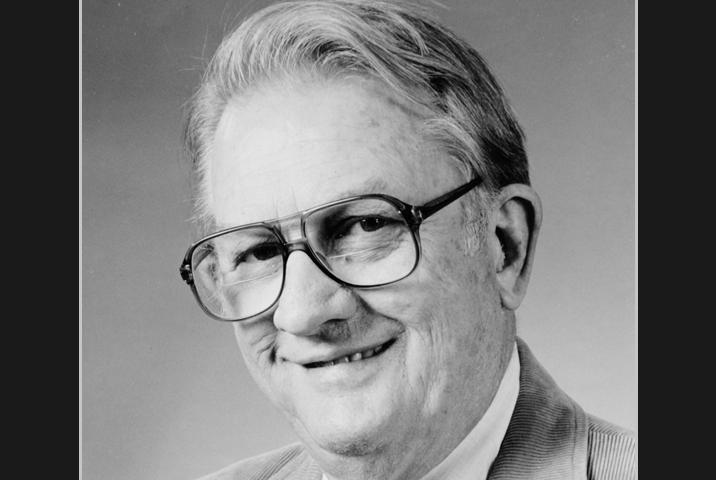
Malcolm Sillars
1928-2018
NCA President: 1980
Malcolm O. Sillars, longtime University of Utah faculty member and administrator, passed away in Salt Lake City on November 12, 2018 at the age of 90. Malcolm was a special man with an extraordinary career, loved for his kindness, humility, and dry humor. He was a first generation college student, who doubted his own abilities but was drawn to teaching and found a path through his talent for speech, drama, and debate. In high school, counselors and teachers advised Malcolm that high school teaching was likely out of his reach and discouraged his interest in debate, as the team was for “really bright students.” Malcolm persevered and exceeded expectations, winning the California state high school championship in two-person, policy debate during his junior year at Mark Keppel High School, and later, the Pi Kappa Delta debate national championship at Redlands College.
Malcolm received his M.A. from Redlands (1949) and PhD at the University of Iowa (1955), taught at Iowa State University (1949-53), California State University, Los Angeles (1954-56), San Fernando Valley State College (now California State University, Northridge; 1954-71), the University of Massachusetts (1971-74), and University of Utah (1974-98). Malcolm served as acting President of Valley State (1969-70) during a tumultuous period of anti-war and civil rights protests, following the resignations of three presidents in a single year. Preceding incidents included a demonstration with over 400 arrests and student-led occupation of the administration building, with the former President held captive. Malcolm left a sabbatical to take the acting president position, explaining to the LA Herald-Examiner in typical self-deprecating fashion that, “they asked 67 other people first, people who had enough sense to turn it down.” Malcolm’s remarkable composure when speaking to angry crowds and willingness to establish open, frank lines of communication with any group helped calm the situation and broker a detailed plan acceptable to all sides. Malcolm’s approach (“I listen to them, and they listen to me”) was credited by the Herald-Examiner with bringing “order out of chaos, substituting reason and dialog for force.”
Malcolm was appointed Dean of Humanities at the University of Utah (1974-81), then returned to teaching as Professor of Communication at Utah until retirement. Mal and Char embraced the Utah culture, enjoyed the mountain lifestyle, became loyal Ute fans, and hosted many parties for their close network of friends in the Department of Communication. Although not a religious man, Malcolm read extensively about Mormon traditions and Utah history, reflecting his inherent curiosity about the human experience and respect toward all people.
Over the duration of his career, Malcolm served as President of the Western States Communication Association and National Communication Association, authored or co-authored books on public speaking, argumentation, and rhetorical criticism, and produced an influential program of scholarship on political rhetoric, value analysis, and social movements. He was a key organizer of the Alta Conference on Argumentation from its inception in 1979. As NCA member, Mal was not a fan of the convention theme, so NCA had its “no theme” convention in 1980 when Mal served as President and refused to have one. Although he made many professional contributions, teaching remained Mal’s first love. He was a beloved mentor for numerous students and left a deep footprint.
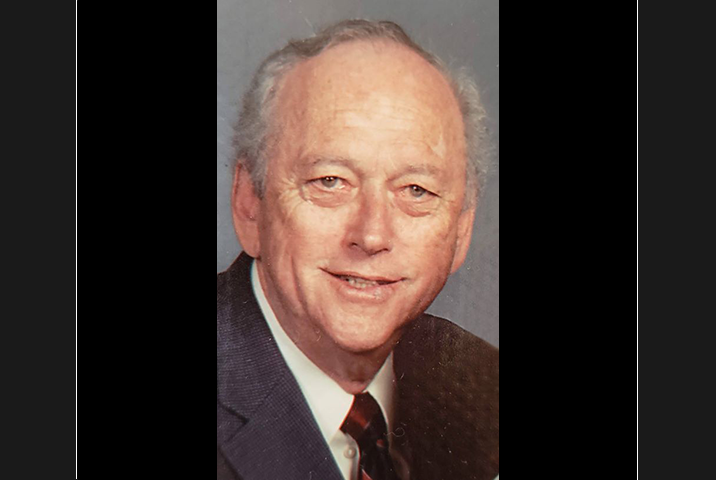
Ronald Allen
1930-2018
NCA President: 1979
Ronald R. Allen, age 87, passed away surrounded by his family on Wednesday, July 11, 2018. Allen served as NCA President in 1979. Born in Horicon, WI, on December 8, 1930, he graduated from Beaver Dam High School and received his Bachelor's degree from the University of Wisconsin - Eau Claire (then known as Wisconsin State College - Eau Claire) in 1952. Following four years of service as a naval air intelligence officer in the South Pacific, he married his college sweetheart JoAnne Elizabeth Kuehl in February, 1957, in Eau Claire, WI. Upon receiving his Ph.D. from the University of Wisconsin - Madison in 1960, he joined the faculty at Amherst College (Amherst, MA) before returning as a faculty member to the University of Wisconsin - Madison in 1963, where he retired as Professor of Communication Arts and Curriculum Instruction in 1990. He and his wife JoAnne have been residents of Sun Prairie, WI, since 1963, and additionally winter residents of Green Valley, AZ, since 1991.
A devoted teacher and mentor, as well as debate coach, he trained generations of future teachers and wrote textbooks on language education for pupils spanning elementary school age to college. He was an active member of the Speech Communication Association, serving as its president in 1979. His students remember him as a passionate mentor with a wry wit, one who was always accessible and available to advise and assist on matters professional and personal. He had a playful way with words and disliked it when people became "inebriated by the exuberance of their own verbosity." A proud father and grandfather, he was generous and playful, and never missed an opportunity to reveal his pride for all of his family. His generosity and kindness extended well beyond his family, to neighbors, strangers, and friends; upon retirement he routinely shuttled the elder Green Valley neighbors to appointments and treated them to outings. An active member of the United Methodist Church of Sun Prairie, he served a term as lay leader and taught the Bethel Bible Series study.
He is preceded in death by his parents Clayton and Hazel (Whipple) Allen, and his sister Iris Stehowsky. He is survived by his wife of 61 years, JoAnne, sons John (Katja Ehrmann) Allen and David (Sheela) Allen, and grandchildren Emily Allen, Wil Allen, Ella Allenbeck, Josh Allen, and Jacob Allen.
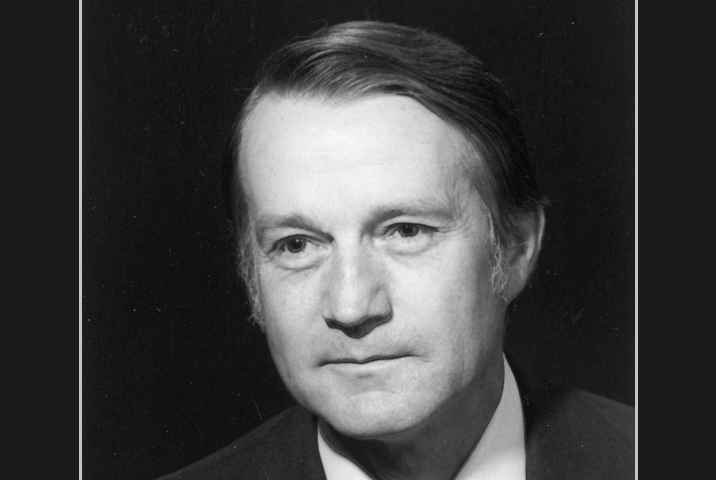
Lloyd Frank Bitzer
1931-2016
NCA President: 1976
Lloyd Frank Bitzer died October 13, 2016, at the family home at age 85. From 1961 to 1994, he was a professor at the University of Wisconsin, specializing in the history and theory of rhetoric.
Dr. Bitzer was born January 2, 1931, in Wapakoneta, Ohio. He was an undergraduate at Southern Illinois University from 1950 to 1952, then served two years in the U.S. Navy, after which he completed his B.S. and M.A. degrees. He earned his Ph.D. in rhetorical studies from the University of Iowa, and joined the University of Wisconsin-Madison as an assistant professor in 1961.
In 1976, Dr. Bitzer served as President of the National Communication Association. He also won the NCA Distinguished Scholar Award in 1997, the James A. Winans-Herbert A. Wichelns Memorial Award in 1968, and the Golden Anniversary Monograph Award in 1979. As a professor in the humanities, in which scientific method, evidence and precision are never decisive, he wrote essays and books that came as close to truth as he could manage. As a teacher, he supplied students with original writings by the best authors.
He is survived by his wife of 63 years, Jo Ann (Eblen) Bitzer; daughter Jo Claire and her husband Herman Tucker; son Evan; two grandchildren, Danny (Kimberly) and Jolene Bitzer, and their mother Kim; great-grandson Lincoln Eric Bitzer (son of Danny and Kimberly); and brother James Mark Bitzer. Two sons predeceased him: Eric T. Bitzer (father of Danny and Jolene), and Jeffrey C. Bitzer. Of his siblings, those deceased are Clarence William Bitzer and Helen (Bitzer) Sheets.
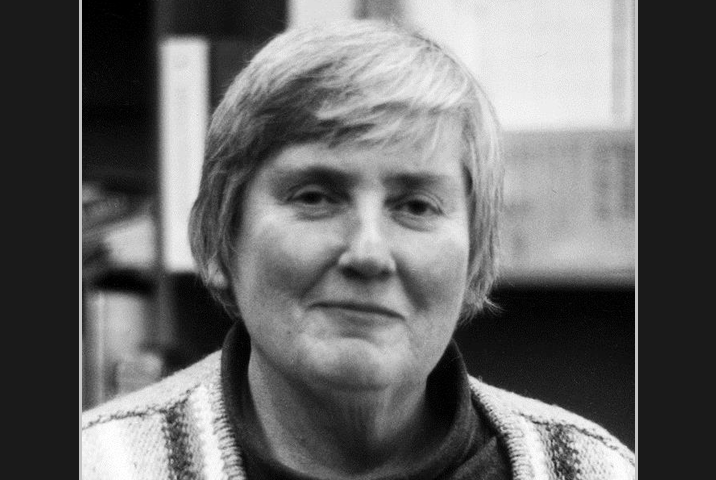
Jane Blankenship
1934-2015
NCA President: 1978
Read Dr. Blankenship's Obituary
Dr. Jane Blankenship, the 64th President of the National Communication Association (1978), passed away on April 24, 2015. Born in 1934 and a native of Huntington, West Virginia, Professor Blankenship was a graduate of the University of Akron and received her Ph.D. in 1961 from the University of Illinois. Her mentor was Marie Hochmuth Nichols, NCA’s 55th President. She was also mentored by NCA’s 72nd President, Wayne Brockriede, when she served as an assistant for his debate program. Dr. Blankenship served on the faculty of Mount Holyoke College’s Rhetoric and Composition program before moving to the Department of Communication at the University of Massachusetts Amherst. During her tenure there as Director of Graduate Studies, the university established a Communication Ph.D. program. Dr. Blankenship retired as a professor in 1997. Active in several of the discipline’s associations, she also served as President of the Eastern Communication Association.
Dr. Blankenship received numerous prestigious awards throughout her career, including many from NCA – the Golden Anniversary Monograph Award (1975); the Robert J. Kibler Memorial Award (1988); the Douglas Ehninger Distinguished Rhetorical Scholar Award (1992); the NCA Feminist and Women’s Studies Division Spotlight Scholar (1994); the Wallace Bacon Lifetime Teaching Excellence Award (1997); and the NCA Women’s Caucus Francine Merritt Award for Outstanding Contributions to the Lives of Women in the Field of Communication (2002).
As part of an NCA initiative to capture the stories of women who have been prominent in NCA and beyond, Dr. Blankenship joined other women leaders in sharing her personal and professional experiences in an essay that is posted to the NCA website.
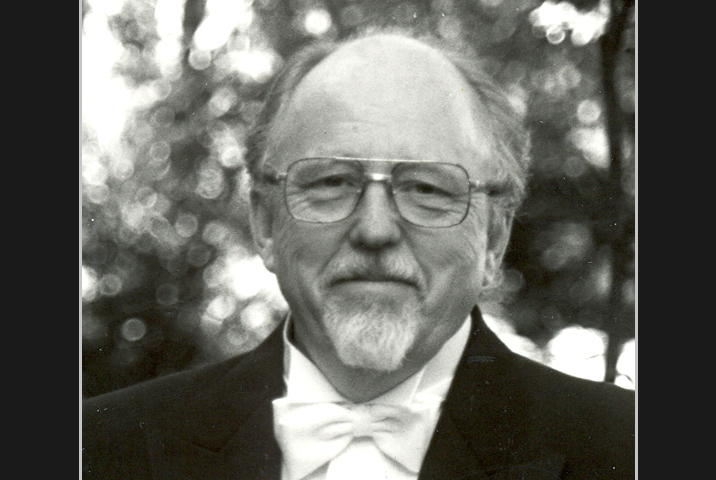
Bruce Gronbeck
1941-2014
NCA President: 1994
Bruce Gronbeck (1941 – 2014) was President of NCA in 1994. He also won NCA’s Distinguished Scholar Award, Samuel L. Becker Distinguished Service Award, and Golden Monograph Award for his many contributions to the field of Communication.
He died September 10 in Iowa City doing what he loved so much: being with his friends and colleagues at the University of Iowa. He delivered his last lecture Tuesday, and then hours before his death on Wednesday, was bathed in love and gratitude from his colleagues and students at a celebratory dinner.
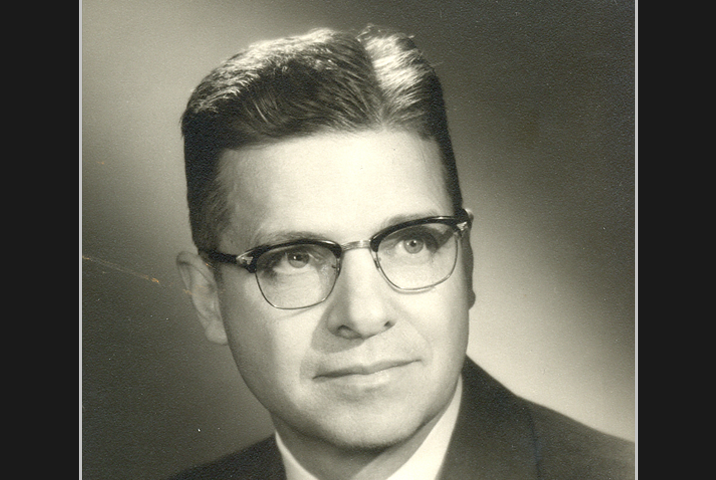
Loren Reid
1905-2014
NCA President: 1957
Dr. Loren D. Reid, the 43rd president of the National Communication Association (1957), passed away on December 25, 2014, at the age of 109. Born in 1905 and a native of Gilman City, Missouri, Professor Reid was a graduate of Grinnell College and received his Ph.D. in 1932 from the University of Iowa, (one of the first doctoral degrees in Speech awarded in the United States). His doctoral advisor was A. Craig Baird, NCA’s 24th president. Dr. Reid joined the Department of Speech and Dramatic Art (now the Department of Communication) at the University of Missouri in 1944, just four years after the department was founded. He remained a member of the Missouri faculty until his retirement in 1975, which ended a remarkable 31-year career as a teacher-scholar.
A significant and successful rhetorical scholar, Professor Reid authored the influential essay “The Perils of Rhetorical Criticism” in the Quarterly Journal of Speech, 1944, edited the important 1961 collection American Public Address: Studies in Honor of Albert Craig Baird, and authored Charles James Fox: A Man of the People in 1969, a book published by the University of Missouri Press that received NCA’s Golden Anniversary Book Award and the association’s Winans-Wichelns Award for Distinguished Scholarship in Rhetoric and Public Address. Rare among Communication scholars, Reid’s research earned him an appointment as a Fellow of the Royal Historical Society.
As a teacher and mentor for generations of students at Missouri and those from colleges and universities across the nation, Reid personified the ideal “speech teacher.” Former NCA President Steven Beebe noted of his former teacher and mentor, “He was an inspiration to me and countless others during his legendary career as an educator, scholar, and academic leader…Thank you, Professor Reid, for illuminating my life and the light of so many others.”
Loren Reid’s long-time service to NCA and to the Communication discipline has no parallel. His leadership included service as both President and Executive Secretary of the National Communication Association (NCA) and Executive Secretary of the Central States Communication Association (CSCA). In 1981, Professor Reid received the NCA Distinguished Service Award, in 2002 he received an NCA Mentor Award, and in 2005 he was inducted into the CSCA Hall of Fame. Reid was also a founder of both the Speech and Theatre Association of Missouri and the New York State Speech Communication Association. A true champion of the discipline, Reid optimistically dedicated his time and considerable energy to the betterment of his students, the universities he called home, and the discipline he worked so hard to establish and maintain. He truly personified NCA founder and first President James O’Neill’s charge in 1915: “Those who take part in all the work that is before us can with better grace and better appetite enjoy whatever benefits this work produces.”

